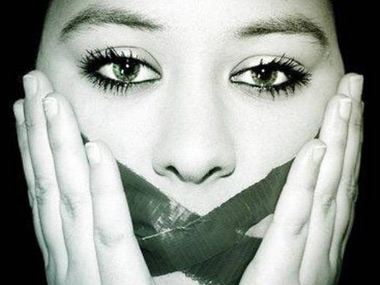New Delhi, India (TFC) – The Supreme Court of India has stricken a controversial internet censorship law written 15 years ago.
The law was enforced in 2012 when Saheen Dhada posted a comment against the death of politician Bal Thackeray. Her original post said:
Every day thousands of people die. But still the world moves on. Just due to one politician dead, a natural death everyone just goes crazy.. they should know.
We are resilient by force not by choice. When was the last time did anyone show some respect or even a 2mins silence for Shaheed Bhagat Singh, Azad, Sukhdev or any of the people because of whom we r free living Indians…respect is earned not given and definitely not forced.
Today, Mumbai shuts down due to fear not due to respect!!! [All Formatting Retained]
Free speech advocate and law student Shreya Singhal recognized the danger of the censorship and political prosecution, and began a campaign in support of Dhada and one other girl arrested at the time for simply “liking” the post. “Nobody should have fear of putting up something because of the fear of going to prison,” Singhal said in statements to Indian press.
In turning down the law, the Indian Supreme Court declared, “Governments come and go. We can’t act on assurance that Section 66A will not be misused.”
The overturned section reads:
66A. Punishment for sending offensive messages through communication service, etc.
Any person who sends, by means of a computer resource or a communication device,—
(a) any information that is grossly offensive or has menacing character; or
(b) any information which he knows to be false, but for the purpose of causing annoyance, inconvenience, danger, obstruction, insult, injury, criminal intimidation, enmity, hatred or ill will, persistently by making use of such computer resource or a communication device,
(c) any electronic mail or electronic mail message for the purpose of causing annoyance or inconvenience or to deceive or to mislead the addressee or recipient about the origin of such messages,
shall be punishable with imprisonment for a term which may extend to three years and with fine.
This cyber security law has also been used by the Indian Government to shut down over 30 websites in December. The shut down came in part from results of 5,473 requests from the government to Facebook for user information in the second half of 2014. The Supreme Court did not remove India’s ability to block websites.
In US Inc., efforts continue to institute SOPA/PIPA/CISPA. Language similar to Rule 66A appears in Section 3 of HR234, the 2015 Cyber Intelligence and Security Protection Act. CISPA authorizes the US Federal Government to monitor, investigate and disseminate information across agencies without warrant. The vague language and open interpretation of surveillance and enforcement opens pathways in the US for political persecution and targeting of another Aaron Swartz or Shaheen Dhada. According to US Senator Ron Wyden, “If information-sharing legislation does not include adequate privacy protections then that’s not a cybersecurity bill – it’s a surveillance bill by another name.” With broad information sharing powers, persecution of free speech is an open possibility.
You can read the full House Bill here.


